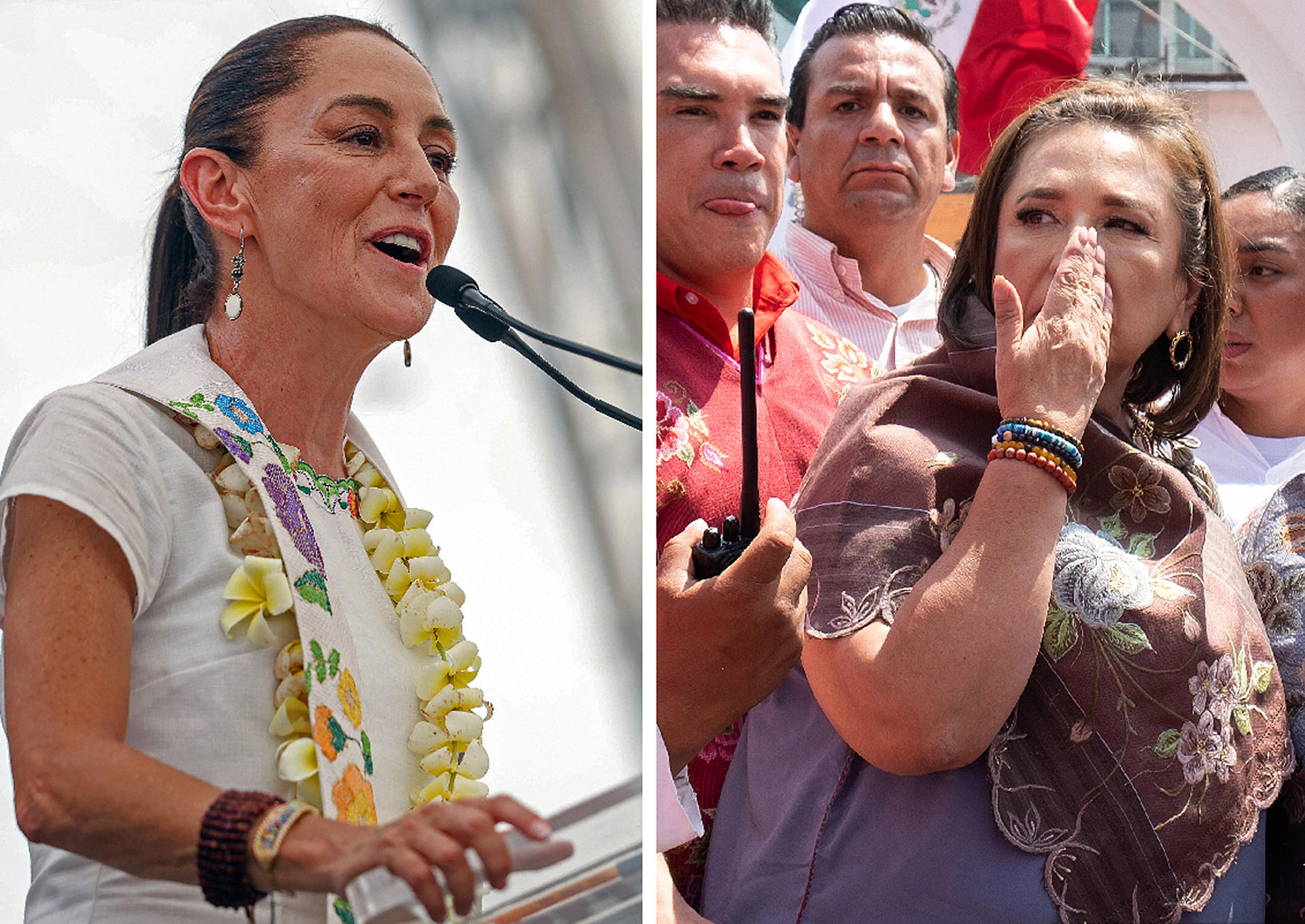Mexico City, (EFE).- One week before the June 2 elections in Mexico, the largest in the country’s history, and three days after the closing of campaigns, the ruling party, Claudia Sheinbaum, and the opposition Xóchitl Gálvez, They have stepped on the accelerator this weekend in the final stretch of their campaigns and in the process of succeeding President Andrés Manuel López Obrador.
Sheinabum, leader in the polls, dedicated himself this Saturday to supporting the candidates of the Let’s Keep Making History coalition made up of the National Regeneration Movement (Morena), Tradbo (PT) and Green Ecologist of Mexico (PVEM) parties for the governments of the states of Veracruz, Puebla and Morelos, while this Sunday it passed through Chiapas and Yucatán.
In the case of Gálvez, second in the polls, on Saturday, like Sheinbaum, she visited Puebla and later Chihuahua and this Sunday she will pass through Chiapas, Veracruz and Morelos, to support the candidates of the Fuerza y Corazón por México coalition, made up of by the National Action Parties (PAN), Institutional Revolutionary Parties (PRI) and the Democratic Revolution (PRD)
In the elections on June 2, the largest in the history of Mexico, more than 98 million citizens are called to the polls to renew more than 20,700 positions, including the presidency, the 500 seats in the Chamber of Deputies and the 128 of the Senate, as well as nine state governments.
The nine states of Mexico that will change governments are: Chiapas, Mexico City, Guanajuato, Jalisco, Morelos, Puebla, Tabasco, Veracruz and Yucatán, in several of which both coalitions face close competition.
Sheinbaum will end with an event in the Zócalo of Mexico City and Gálvez will have one last event in Monterrey, Nuevo León, both on May 29, the last day allowed by the electoral authority to promote herself and then an electoral ban period will begin until Election day, June 2.
Sheinbaum: indigenous peoples will be subjects of law
Sheinbaum confirmed this Sunday that a central axis of his government project will be the reform of article 2 of the Mexican Constitution so that indigenous peoples are subjects of law, the autonomy of indigenous peoples and their forms of organization are recognized.
In front of more than 7,000 people, he assured that in his administration the face of the state of Chiapas will change, “through projects that allow us to take care of the environment, the jungles and recognizing the indigenous peoples in the decision of their territories, their natural resources , as well as culture and its forms of organization.”
He recalled that President Andrés Manuel López Obrador on February 21, on International Mother Language Day, sent the reform initiative to guarantee the rights of the communities and indigenous and Afro-Mexican peoples of the country.
Chiapas is one of the states with the greatest cultural diversity in Mexico, due in large part to the presence of different indigenous groups in the integration of their societies.
Among his government promises, Sheinbaum said that for Chiapas “a special program will be opened to seek “fair prices for coffee and corn and it will be a state of development with a humanistic outlook to address even the migration that comes from the south.”
Gálvez, return peace and tranquility to Chiapas
Gálvez promised this Sunday in the indigenous municipality of Zinacantán, Mexican state of Chiapas (southeast) that if he becomes president he will “return peace and tranquility” to the region, which in recent months has been hit by organized crime , insecurity and violence.
“Trust me, you are going to have a president who is not going to think about pharaonic works (in reference to the infrastructure works of President Andrés Manuel López Obrador) that have been a theft of money, she is going to think about her families, she is going to return peace and tranquility to Chiapas, I guarantee it,” said Gálvez.
“They are going to have the bravest female president that Mexico has ever had, the criminals are over, the party is over for the criminals, they are going to go to jail,” he added in his speech to the Tsotsil indigenous people of Zinacantán , where he closed his campaign in Chiapas.
In recent months, Chiapas has seen an increase in insecurity and violence caused by clashes between organized crime groups in different municipalities.
On May 15, Chiapas, Bishops of San Cristóbal de Las Casas, indicated that in some regions of the state of Chiapas, which in recent months and weeks have been affected by violence, insecurity or that are controlled by drug trafficking groups, there is no there were conditions to hold the June 2 elections.
Keep reading:
- Candidate for the presidency of Mexico, Xóchitl Gálvez accuses President López Obrador of affecting her campaign
- The economic data that defined Mexico’s second presidential debate
- López Obrador recognizes that it is “advantageous” for Mexico to integrate with the US but with “respect”
